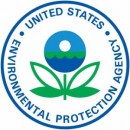
The holiday weekend just concluded finds the nation still grappling with the COVID-19 pandemic as the overriding priority in virtually every aspect of our daily lives. This applies to the logistics sector as well, with several new items of interest related to the subject. Life does go on in the meantime too of course, and this is reflected in the fact that there are several other items of note in the regulatory news this week; let’s hope it’s a sign that perhaps things will return towards normalcy in the near future. Stay safe, keep your spirits up, and together we’ll all keep working to get through this unprecedented time. Here’s all the latest:
COVID-19 Specific News
PHMSA
Two weeks ago now the agency published its emergency guidance regarding relaxed rules for the shipment of hand sanitizer. This was covered extensively in last week’s blog. Now PHMSA has followed that up with a helpful interpretive guide that offers answers to many questions that have arisen since the publication of the initial guidance. Many shippers of this suddenly imperative commodity are unfamiliar with the DG transport structure that regular readers here take for granted as part of their professional portfolio. This guide is intended to be a help to such new shippers, but it’s useful for all of us to make sure we understand how the rules are intended to work. Here’s the link to the information.
The agency joined Transport Canada and many of the ADR nations in issuing a temporary relaxation regarding requalification testing for DOT spec cylinders. Such cylinders require test and recertification on a periodic basis. Cylinders whose certifications expire during this crisis may be difficult to immediately requalify per usual procedure account social distancing requirements, so PHMSA is acting to allow for this potential delay. See the modification here.
USPS
The Postal Service has now issued its own exemption for shipping hand sanitizers via domestic surface mail and some very limited domestic-only air mail. USPS offers the following information:
Mailers can obtain special exception through the Manager, Product Classification to increase the quantity of items containing ethyl and isopropanol alcohol sent via surface transportation. Additionally, mailers can also be granted special authorization by the Manager, Product Classification to ship limited quantities of ethanol alcohol in domestic air transportation.
If a mailer holds a valid authorization or exception from the Manager, Product Classification, the following criteria must be met upon acceptance of the items:
- The mailer must produce a copy of the USPS letter containing the applicable mailing requirements with Manager, Product Classification, signature, upon the first mailing of these items at each postal facility.
Note: It is suggested that the facility maintains copies of such letters on file for future reference.
- The outer package must have the appropriate text marking “Contains xxx” followed by their assigned unique authorization number that will begin with either HSA, HSB, HSD or HSE.
Note: This information is included in the letter and may be hand or type written prominently on the package. Examples of text markings:
“Contains Air-Eligible Ethyl Alcohol – Authorization No. HSA – xxxxxx”
“Contains Air-Eligible Ethyl Alcohol – Authorization No. HSB – xxxxxx”
“Contains Surface Eligible Ethyl Alcohol – Exception No. HSE – xxxxxx”
“Contains Surface Eligible Isopropyl Alcohol – Exception No. HSD – xxxxxx”
Please note that these materials are strictly prohibited in international mail international, Army Post Office (APO), Fleet Post Office (FPO) and Diplomatic Post Office (DPO)” destinations. For additional information, refer to Publication 52 Hazardous, Restricted, and Perishable Mail, Section 343 and Appendix C – 3A or 3D for the appropriate Packaging Instruction. If you have questions, please contact the Pricing & Classification Service Center (PCSC) at pscs@usps.gov or Product Classification at productclassification@usps.gov
Here is a link to the appropriate USPS Packing Instruction referred to in the text above.
TSA
TSA is granting a temporary exemption from requirements in 49 CFR part 1572 regarding expiration of TSA security threat assessments (STAs) for Hazardous Material Endorsement (HME). For the duration of this exemption, a State may grant an extension of up to 180 days for an HME that expired or would otherwise expire between March 1, 2020 and the end date of this exemption, even if the individual was unable to initiate or complete the required STA before the expiration date. If the state grants an extension, the individual with an expired HME must initiate the process of renewing his or her STA for an HME no later than 60 days before the end of the State-granted extension. TSA may extend this exemption at a future date depending on the status of the COVID–19 crisis. This exemption becomes effective on April 2, 2020, and remains in effect through July 31, 2020, unless otherwise modified. See the full exemption declaration here.
Transport Canada
Due to the high demand placed on the category by the COVID-19 outbreak, Transport Canada has established a new resource page for shippers dealing with the transport of infectious substances. The page offers information and links to help users understand how to navigate current Canadian requirements and also includes a section specific to shipping COVID-19 sample related materials. See the new resource page here.
FRA
The agency published its first safety advisory of 2020. The advisory relates to the COVID-19 pandemic and advises rail operators to follow all federally recommended guidelines for social distancing and sanitizing activities to protect the health of workers. See the advisory here.
IATA
The association updated its COVID-19 website. The page serves as a clearinghouse for all information provided to IATA by member states and carriers about air operations that are or may be affected by the pandemic. See the updated page here.
Other News
PHMSA
In a welcome bit of routine news in an otherwise unsettled time, PHMSA published its latest set of Special Permit actions. They cover the usual suspects—batteries, cylinders, portable tanks and one-off transports. See the links for specific information.
https://www.govinfo.gov/content/pkg/FR-2020-04-08/pdf/2020-07370.pdf
https://www.govinfo.gov/content/pkg/FR-2020-04-08/pdf/2020-07369.pdf
https://www.govinfo.gov/content/pkg/FR-2020-04-08/pdf/2020-07368.pdf
U.S. EPA
EPA is amending the Toxic Substances Control Act (TSCA) Chemical Data Reporting (CDR) regulations by extending the submission deadline for 2020 reports from September 30, 2020, to November 30, 2020. This is a one-time extension for the 2020 submission period only. The CDR regulations require manufacturers (including importers) of certain chemical substances included on the TSCA Chemical Substance Inventory (TSCA Inventory) to report data on the manufacturing, processing, and use of the chemical substances. This final rule is effective April 9, 2020. See it here.
The agency published a revision to the way some chemicals may be reported under the TSCA rules. The revisions are intended to offer more clarity as to how to do that and according to the agency, ease the regulatory burden for reporting companies. See the revisions here.
EPA also announced the draft scope document availability for the next set of thirteen chemicals to be evaluated under the TSCA’s new risk evaluation system. As time passes, the agency will review more and more chemicals under this new mandate; however, with potentially thousands of candidate substances on the list, the process will be quite lengthy. See the latest information here.
On March 24, 2020, the Assistant Administrator of the EPA Office of Enforcement and Compliance Assurance signed a memorandum providing a ‘‘no action assurance’’ to three categories of manufacturers regarding the self-identification requirement of the Toxic Substances Control Act (TSCA) Fees Rule, consistent with planned revisions to the TSCA Fee Rule. The three categories of manufacturers are:
- Importers of articles containing high-priority substances
- Producers of one of the high-priority substances as a byproduct
- Producers or importers of one of the high-priority substances as an impurity.
For now this action applies only to the first twenty high-priority substances identified by EPA under the TSCA rules, but the agency appears to intend that it will eventually apply generally to high-priority substances once the rule revision mentioned in the text is actually finalized. See the link for further information.
FMCSA
The FMCSA requests approval to revise and extend an existing ICR titled, ‘‘Hazardous Materials Safety Permits.’’ This ICR requires companies holding safety permits to develop communications plans that allow for the periodic tracking of the shipments. A record of the communications that includes the time of the call and location of the shipment may be kept by either the driver (e.g., recorded in the log book) or the company. These records must be kept, either physically or electronically, for at least six months at the company’s principal place of business or readily available to the employees at the company’s principal place of business. See the ICR here.
In a second requested ICR, the agency requests approval to revise an ICR titled ‘‘Training Certification for Entry-Level Commercial Motor Vehicle Operators,’’ which will now be used to register providers of entry-level driver training and to provide State Drivers’ Licensing Agencies with information on individuals who have completed said training. If approved, this revision will allow FMCSA to collect information on registered training providers and entry-level driver training certification information until 2022. See the request here.
OSHA
The agency published an ICR request dealing with presence sensing devices that form part of machine guards. Such devices initiate mechanical stops to protect user employees from the machine action. See the ICR here.
TSA
The agency published a request for information and comment from the public, specifically the air cargo industry (including manufacturers, shippers, suppliers, warehouses, e-commerce fulfillment centers, third-party logistics providers, and air carriers) relating to compliance with international security standards for the transport of air cargo by commercial aircraft operators. Effective June 30, 2021, international standards require that all international air cargo carried by commercial aircraft operators (passenger and all-cargo) be either screened or be received from another TSA-regulated entity that has applied security controls and/or screened the cargo. TSA is seeking information regarding options to reduce the burden on U.S. and foreign all-cargo aircraft operators in complying with the international standard, such as security controls implemented throughout the supply chain that provide a level of security commensurate with the screening of cargo before transport.
Note: Because TSA does not expect these standards to require changes to current procedures for cargo transported on passenger aircraft, this RFI is focused only on all-cargo operations. Submit comments by July 9, 2020.
Here’s the link to get started
Labelmaster is a full-service provider of products, shipping and training software, and professional consulting services to assist the DG and HS&E professional to comply with national and international regulations. See our full line of solutions at www.labelmaster.com.


In the section on USPS regulations for hand sanitizer, Air Eligible Ethyl Alcohol is listed twice. Is the second listing for isopropyl alcohol (Authorization HSB xxxx)?
Dear Mr. Stewart,
In reference to your query below: that is a reasonable assumption given the rest of the associated text. However what is in the blog is a direct cut and paste of the USPS release. We did not modify or transcribe the language. It is verbatim what USPS published.
Thank you.
Ms. Nikki Burgess, DGSA, CDGP, Senior Regulatory Specialist